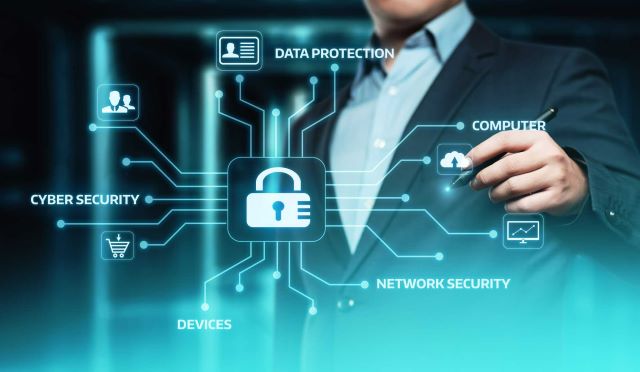Sleep Easy at Night: The Cybersecurity Solutions You Need

In today’s interconnected world, where information flows freely across digital borders, the threat of cyberattacks looms large. Businesses, individuals, and governments alike face the constant risk of data breaches, malware attacks, and other online threats. To combat these dangers, cybersecurity solutions have emerged as essential tools for protecting our sensitive information and digital infrastructure.
What are Cybersecurity Solutions?
Cybersecurity solutions encompass a diverse range of technologies, processes, and best practices designed to protect systems, networks, and data from unauthorized access, use, disclosure, disruption, modification, or destruction. These solutions aim to provide a multi-layered defense against cyber threats, encompassing:
Network security: Firewalls, intrusion detection and prevention systems (IDS/IPS), and virtual private networks (VPNs) protect against unauthorized access and malicious traffic.
Endpoint security: Antivirus and anti-malware software, application control, and data encryption safeguard devices from malware and unauthorized data access.
Cloud security: Identity and access management (IAM), data encryption, and security information and event management (SIEM) secure cloud-based resources and data.
Data security: Data loss prevention (DLP), data encryption, and data backup and recovery solutions protect sensitive data from loss, theft, or unauthorized access.
Application security: Secure coding practices, vulnerability assessments and penetration testing (VA/PT), and web application firewalls (WAFs) protect applications from vulnerabilities and attacks.
Available Cybersecurity Solutions and their Pros and Cons:
The ever-evolving landscape of cyber threats necessitates a diverse range of cybersecurity solutions, each with its own strengths and weaknesses. Let’s explore some popular options:
Pros: Offers basic protection against known viruses and malware.
Cons: May not detect new or zero-day threats, can impact system performance.
- Firewall:
Pros: Blocks unauthorized access to networks and systems. Cons: May require complex configuration, can block legitimate traffic.
- Intrusion Detection and Prevention Systems (IDS/IPS):
Pros: Detect and prevent malicious activity in real-time. Cons: Can generate false positives, require skilled personnel to configure and monitor.
- Data Encryption:
Pros: Protects data from unauthorized access even if compromised. Cons: Requires careful key management, can impact performance.
- Identity and Access Management (IAM):
Pros: Controls access to resources and data based on user roles and permissions. Cons: Requires complex setup and maintenance, can be expensive.
Pros: Provides centralized visibility and analysis of security events across an organization. Cons: Requires significant storage and processing resources, can be complex to implement and manage.
Who Needs Cybersecurity Solutions?
In today’s digital age, everyone needs cybersecurity solutions. From individuals protecting their personal information to businesses safeguarding sensitive data and critical infrastructure, cybersecurity is no longer an option but a necessity.
The specific solutions needed will vary depending on individual needs and risk profiles. However, some groups with heightened cybersecurity requirements include:
- Businesses: Businesses store and process vast amounts of sensitive data, making them prime targets for cyberattacks.
- Financial institutions: Banks, credit card companies, and other financial institutions handle highly sensitive financial data, requiring robust security measures.
- Healthcare organizations: Healthcare organizations manage patient records and medical information, demanding stringent data privacy and security protections.
- Government agencies: Government agencies possess sensitive national security and citizen data, necessitating high-level cybersecurity defenses.
Making the Decision:
Choosing the right cybersecurity solutions requires careful consideration of factors like:
- Your specific needs and risk profile
- The size and complexity of your organization
- Your budget
- Available resources and expertise
- Compliance requirements
It’s crucial to consult with cybersecurity experts and conduct thorough research before making a decision.








